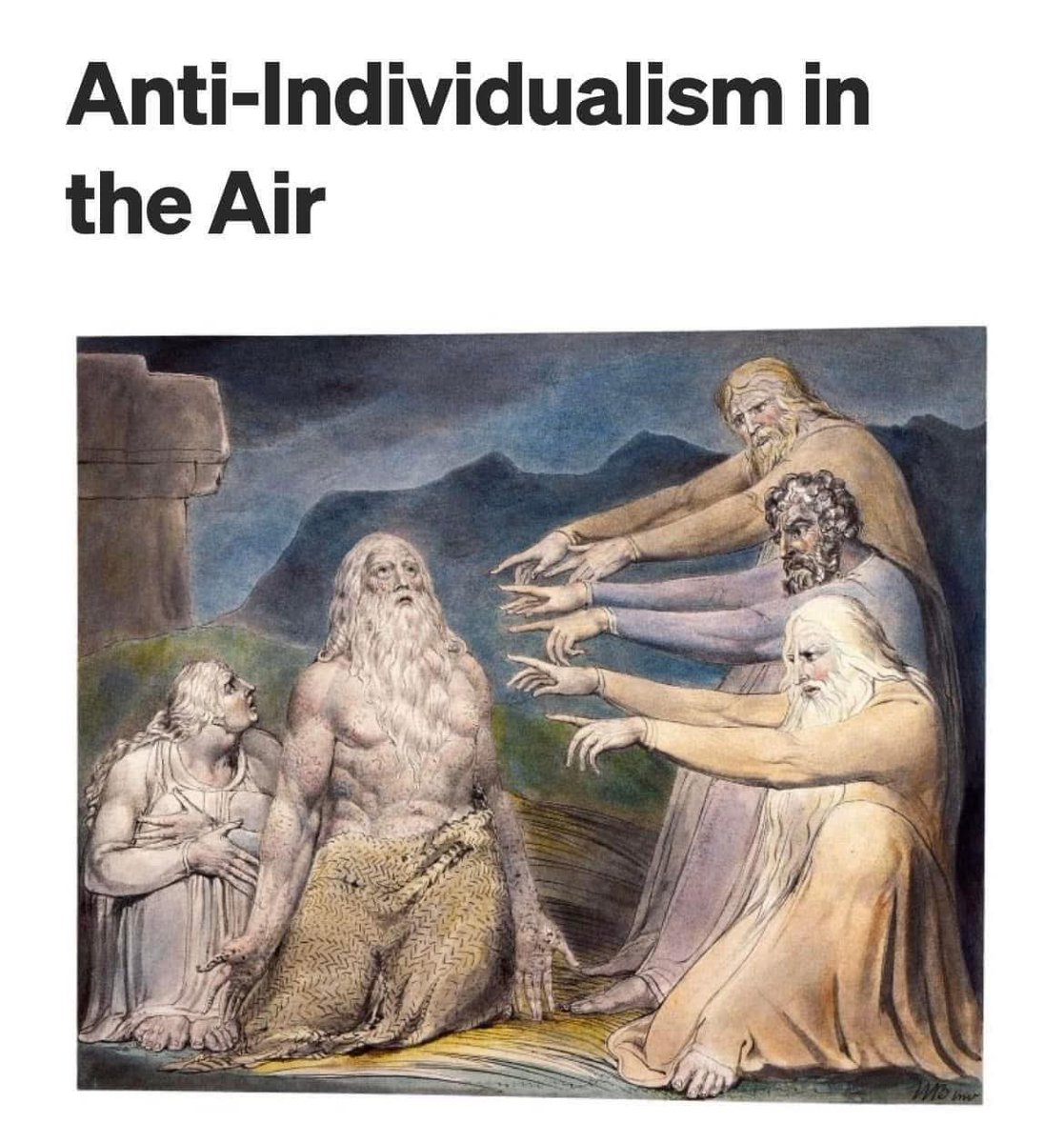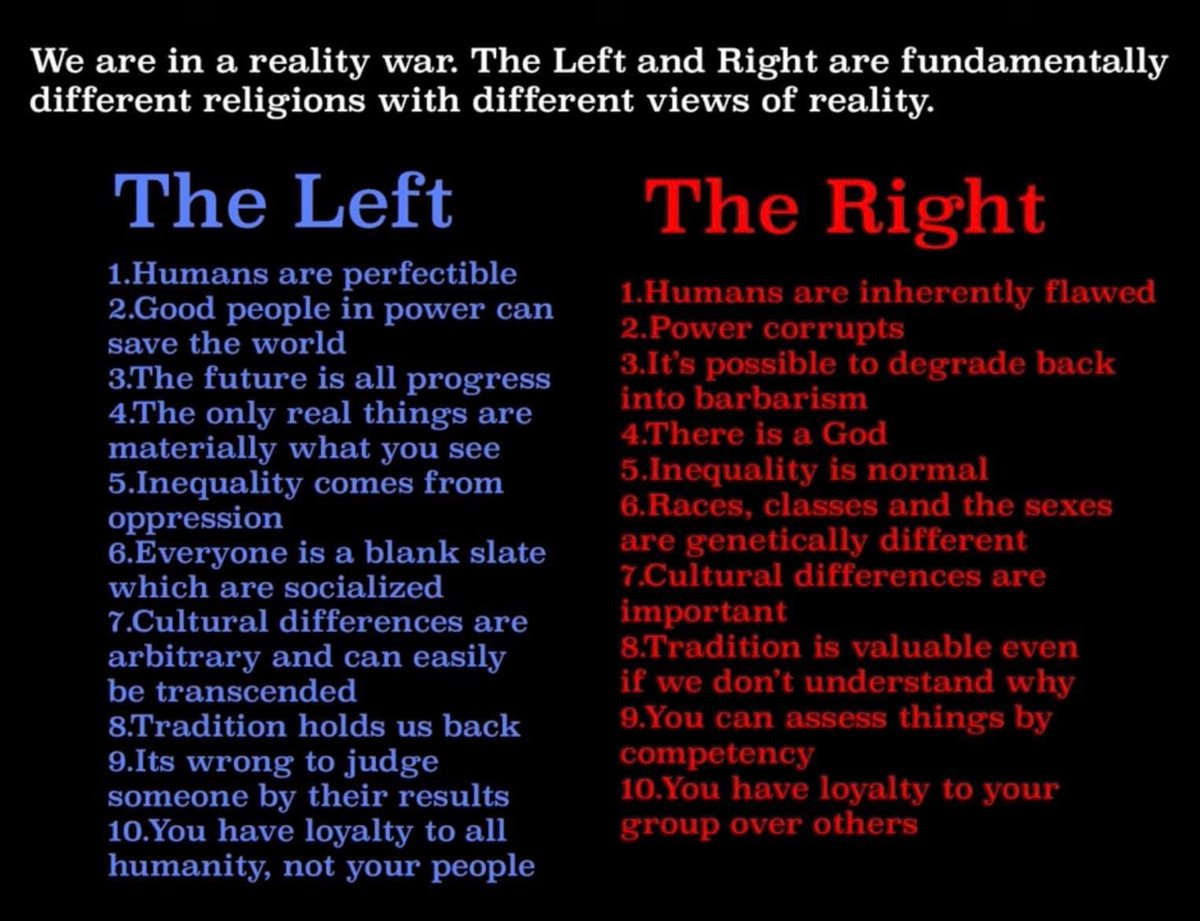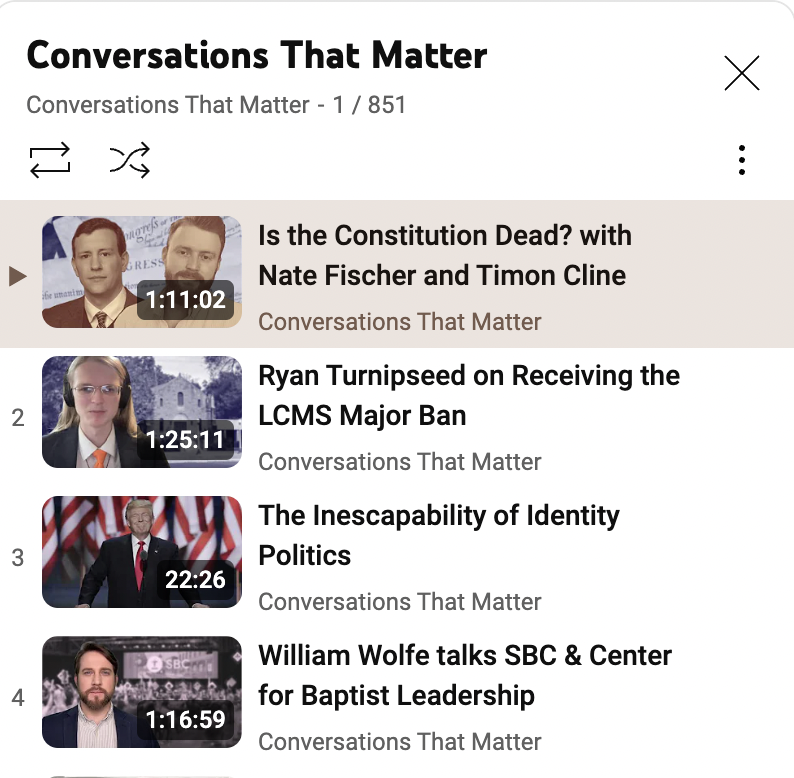(And be right?)
Yes.
Why is individualism condemned by cultural elites, including Christians?
Though many agree that America’s unique heritage is connected with its individualism, it is now common to conflate individualism with a lone-wolf mentality, consumerism, crass materialism, and narcissism.
This ends up undermining the legitimate, pro-individual values which have made America a land of freedom and opportunity.
Christians are especially vocal against individualism. Let’s look at why this is the case, what it means, and what to do about it.
Yes.
Why is individualism condemned by cultural elites, including Christians?
Though many agree that America’s unique heritage is connected with its individualism, it is now common to conflate individualism with a lone-wolf mentality, consumerism, crass materialism, and narcissism.
This ends up undermining the legitimate, pro-individual values which have made America a land of freedom and opportunity.
Christians are especially vocal against individualism. Let’s look at why this is the case, what it means, and what to do about it.
Start with a question:
Doesn’t the Bible emphasize community and the collective as good? After all, the church is unified as the body of Christ. Shouldn’t we advocate collectivism, not individualism?
Three foundational points for understanding this issue:
1. Yes, the church is a collective.
Metaphorically, the church is a temple of living stones, a body of many members, and a single bride.
2. Also, the individual soul matters.
Scripture places importance on the individual soul. One’s own soul is one’s primary realm of responsibility and concern (1 Corinthians 9:24–27). The plurality of men matters because the primary unit, the individual, matters.
3. Scripture plainly calls people to seek their own benefit by following God.
As Christians, we work for individual blessing and reward. Even when the work itself often consists in serving others, the command to serve is framed within the promise of reward (Matthew 10:42).
We are individuals; and we are part of a collective.
Doesn’t the Bible emphasize community and the collective as good? After all, the church is unified as the body of Christ. Shouldn’t we advocate collectivism, not individualism?
Three foundational points for understanding this issue:
1. Yes, the church is a collective.
Metaphorically, the church is a temple of living stones, a body of many members, and a single bride.
2. Also, the individual soul matters.
Scripture places importance on the individual soul. One’s own soul is one’s primary realm of responsibility and concern (1 Corinthians 9:24–27). The plurality of men matters because the primary unit, the individual, matters.
3. Scripture plainly calls people to seek their own benefit by following God.
As Christians, we work for individual blessing and reward. Even when the work itself often consists in serving others, the command to serve is framed within the promise of reward (Matthew 10:42).
We are individuals; and we are part of a collective.
The real issue is “How should the individuals in the collective relate to one another. Individualism and collectivism are two answers.
Individualism says it is proper for the individual to consider his own good as the motivation for whatever actions he takes.
Collectivism says the individual should be willing to take a long-term loss if necessary in order to benefit the collective, because the “collective good” is of more importance.
What do these views mean in practice?
An individualist is someone who seeks values for himself without guilt.
A collectivist believes he owes the work of his life to others, not for the sake of any future reward to himself, but as a matter of an intrinsic duty which he did not choose but does owe.
The individualist understands that “good” is always “good to a particular person.” Something can be good for one person or another in particular, but not simply “good in general,” for good is a relational term.
By contrast, the collectivist seeks the “collective good.”
Individualism says it is proper for the individual to consider his own good as the motivation for whatever actions he takes.
Collectivism says the individual should be willing to take a long-term loss if necessary in order to benefit the collective, because the “collective good” is of more importance.
What do these views mean in practice?
An individualist is someone who seeks values for himself without guilt.
A collectivist believes he owes the work of his life to others, not for the sake of any future reward to himself, but as a matter of an intrinsic duty which he did not choose but does owe.
The individualist understands that “good” is always “good to a particular person.” Something can be good for one person or another in particular, but not simply “good in general,” for good is a relational term.
By contrast, the collectivist seeks the “collective good.”
While the “collective” or “general” good sounds noble, it is a dubious concept.
If there were such a thing as the “collective good,” what would it mean to say, as the collectivist does, that the collective good is of more importance than the individual good?
Of more importance to whom? To every particular person?
If so, then we are again talking in terms of what is important to individual people and we’re back on the premise of individualism.
That’s not what collectivists advocate. In the secular version of collectivism, values are somehow a group phenomenon. “Everybody in general” is more important than any number of people in particular. “The group” has become simultaneously the standard of value and the proper recipient of value.
When one asks “Why is something good?” the only answer is “because it is good for everyone.”
To go any further would bring individuals back into the equation.
This “group phenomenon” approach to values fails for a simple reason: groups don’t actually exist or have values except when viewed as collections of individuals who exist and have values. The function of valuing is individual.
Does something become valuable because other individuals claim so? Secular collectivism amounts to social subjectivism.
If there were such a thing as the “collective good,” what would it mean to say, as the collectivist does, that the collective good is of more importance than the individual good?
Of more importance to whom? To every particular person?
If so, then we are again talking in terms of what is important to individual people and we’re back on the premise of individualism.
That’s not what collectivists advocate. In the secular version of collectivism, values are somehow a group phenomenon. “Everybody in general” is more important than any number of people in particular. “The group” has become simultaneously the standard of value and the proper recipient of value.
When one asks “Why is something good?” the only answer is “because it is good for everyone.”
To go any further would bring individuals back into the equation.
This “group phenomenon” approach to values fails for a simple reason: groups don’t actually exist or have values except when viewed as collections of individuals who exist and have values. The function of valuing is individual.
Does something become valuable because other individuals claim so? Secular collectivism amounts to social subjectivism.
Christians have their own version of collectivism.
Unlike many seculars, who largely turn to social subjectivism, a Christian collectivist can offer an answer to “Why is something good?” that is not as obviously irrational as subjectivism, but also is not individualistic. Sounding quite pious, the Christian collectivist answers:
“God is the highest good. No good exists outside of God, and things are only good because they reflect his will and character.”
Though these statements sound lofty, they do not actually answer the question of “Why is something good?” The standard of “the good” remains unclear.
It is the equivalent to asking what is blueness, and being told, “the sky is blue.” That kind of statement is true; it may even be helpful; but it is not a conceptual-level answer to the question.
Such thinking bears little fruit. It does not bring us a better understanding of what “the good” actually is.
To a Christian collectivist, who is nearly always a skeptic and a mystic, this will not necessarily stand out as a problem: we can only have knowledge of good and evil from special revelation.
Sadly, he does not check to learn whether special revelation itself would confirm such a view (Genesis 3, Matthew 16, Romans 1–2).
Unlike many seculars, who largely turn to social subjectivism, a Christian collectivist can offer an answer to “Why is something good?” that is not as obviously irrational as subjectivism, but also is not individualistic. Sounding quite pious, the Christian collectivist answers:
“God is the highest good. No good exists outside of God, and things are only good because they reflect his will and character.”
Though these statements sound lofty, they do not actually answer the question of “Why is something good?” The standard of “the good” remains unclear.
It is the equivalent to asking what is blueness, and being told, “the sky is blue.” That kind of statement is true; it may even be helpful; but it is not a conceptual-level answer to the question.
Such thinking bears little fruit. It does not bring us a better understanding of what “the good” actually is.
To a Christian collectivist, who is nearly always a skeptic and a mystic, this will not necessarily stand out as a problem: we can only have knowledge of good and evil from special revelation.
Sadly, he does not check to learn whether special revelation itself would confirm such a view (Genesis 3, Matthew 16, Romans 1–2).
The individualist continues to recognize that “the good” is knowable, that it relates only an individual, and that only an individual can value something.
What have been the results of such views?
The historical example of individualism is the United States, with its recognition of the individual right to one’s own life, liberty, property, and pursuit of happiness.
Most of the rest of history gives examples of collectivism taken seriously.
Those rulers most committed to the “collective good” included Stalin, Mao, Hitler, Napoleon, Caesar, Xerxes, and the Pharaohs — leaders who subjugated the lives of others and bound them to the will of the group at pain of death.
What have been the results of such views?
The historical example of individualism is the United States, with its recognition of the individual right to one’s own life, liberty, property, and pursuit of happiness.
Most of the rest of history gives examples of collectivism taken seriously.
Those rulers most committed to the “collective good” included Stalin, Mao, Hitler, Napoleon, Caesar, Xerxes, and the Pharaohs — leaders who subjugated the lives of others and bound them to the will of the group at pain of death.
For obvious reasons, those who speak out against individualism rarely speak up for collectivism. A plain comparison between the two ideologies makes their consequences too apparent.
But any time you see individualism denounced, ask what the writer may be silently positing as an alternative.
Likely he believes in collectivism both morally and politically as an ideal and he doesn’t believe it will lead where it always has.
Why do so many prominent opponents of individualism happen to be Christians?
This question can only be answered by tracing currents of ideology across history.
Given the all-embracing nature of religions, and given Christianity’s special emphasis on love and community, it is easy to see how an unchecked ideology of collectivism could graft itself into one’s reading of Scripture.
Christ’s message does require us to denounce narcissism and consumerism.
But collectivist writers are working to reframe these vices under the heading of “individualism.”
When they do this, which are they really attacking: narcissism and consumerism, or individualism?
It would be easy to call these vices by their own names. So when an author chooses to call them “individualism” we do well to ask why.
What effect does this have? Guilt by association.
As Ayn Rand pointed out in Extremism, or The Art of Smearing, “If one heard a man declaring: ‘I am equally opposed to bubonic plague, to throwing acid in people’s faces, and to my mother-in-law’s nagging’ — one would conclude that the mother-in-law was the only object of his hatred and that her elimination was his only goal.”
What is individualism actually?
Individualism is the view that values belong to individuals, not groups, and that individual rights should be protected. If all the above vices are also examples of individualism, the implication is not subtle:
“Americans must be falling to these vices as a result of having placed importance on individual values and rights. Maybe the whole American focus on individual values and rights is improper.”
Can this confusion be unraveled?
Yes.
Here’s how:
While consumerism and materialism are perspectives on what is valuable, individualism is a perspective on to whom value applies — to the group or to the individual. These are different categories with no necessary relationship.
As Christian leaders we should denounce consumerism and materialism in the church, but these are not caused by individualism.
Who are these writers that conflate individualism with vice?
The list is numerous. It includes dear friends.
If we seek to combat the anti-individualism in the air, we need to know what is being said and who is saying it. We need to show that the issue of individualism vs. collectivism undergirds the rest of the moral and political debate in our country.
This issue decides the direction of American society and culture.
What does the church believe?
Currently the church is composed either of people committed to the wrong view, or people who have not even heard of the issue.
What will it take to sway the church? A few good voices, heard and believed.
A study of history leaves no doubt that the church can be changed by a few good voices, and that the world can be changed by the church.
Before we can show the world the way to go, we must show it where it is.
But any time you see individualism denounced, ask what the writer may be silently positing as an alternative.
Likely he believes in collectivism both morally and politically as an ideal and he doesn’t believe it will lead where it always has.
Why do so many prominent opponents of individualism happen to be Christians?
This question can only be answered by tracing currents of ideology across history.
Given the all-embracing nature of religions, and given Christianity’s special emphasis on love and community, it is easy to see how an unchecked ideology of collectivism could graft itself into one’s reading of Scripture.
Christ’s message does require us to denounce narcissism and consumerism.
But collectivist writers are working to reframe these vices under the heading of “individualism.”
When they do this, which are they really attacking: narcissism and consumerism, or individualism?
It would be easy to call these vices by their own names. So when an author chooses to call them “individualism” we do well to ask why.
What effect does this have? Guilt by association.
As Ayn Rand pointed out in Extremism, or The Art of Smearing, “If one heard a man declaring: ‘I am equally opposed to bubonic plague, to throwing acid in people’s faces, and to my mother-in-law’s nagging’ — one would conclude that the mother-in-law was the only object of his hatred and that her elimination was his only goal.”
What is individualism actually?
Individualism is the view that values belong to individuals, not groups, and that individual rights should be protected. If all the above vices are also examples of individualism, the implication is not subtle:
“Americans must be falling to these vices as a result of having placed importance on individual values and rights. Maybe the whole American focus on individual values and rights is improper.”
Can this confusion be unraveled?
Yes.
Here’s how:
While consumerism and materialism are perspectives on what is valuable, individualism is a perspective on to whom value applies — to the group or to the individual. These are different categories with no necessary relationship.
As Christian leaders we should denounce consumerism and materialism in the church, but these are not caused by individualism.
Who are these writers that conflate individualism with vice?
The list is numerous. It includes dear friends.
If we seek to combat the anti-individualism in the air, we need to know what is being said and who is saying it. We need to show that the issue of individualism vs. collectivism undergirds the rest of the moral and political debate in our country.
This issue decides the direction of American society and culture.
What does the church believe?
Currently the church is composed either of people committed to the wrong view, or people who have not even heard of the issue.
What will it take to sway the church? A few good voices, heard and believed.
A study of history leaves no doubt that the church can be changed by a few good voices, and that the world can be changed by the church.
Before we can show the world the way to go, we must show it where it is.
Thanks for reading.
Please give the post a share:
Please give the post a share:
https://twitter.com/codylibolt/status/1954966546562117731
• • •
Missing some Tweet in this thread? You can try to
force a refresh









